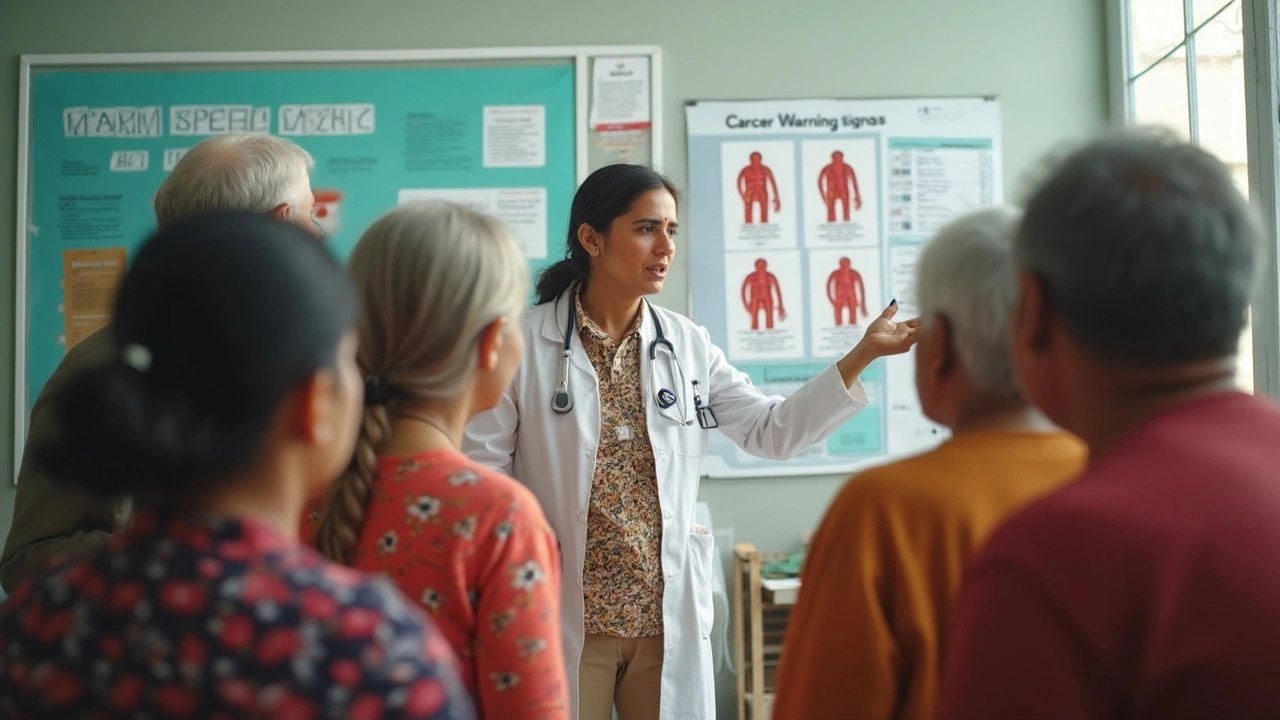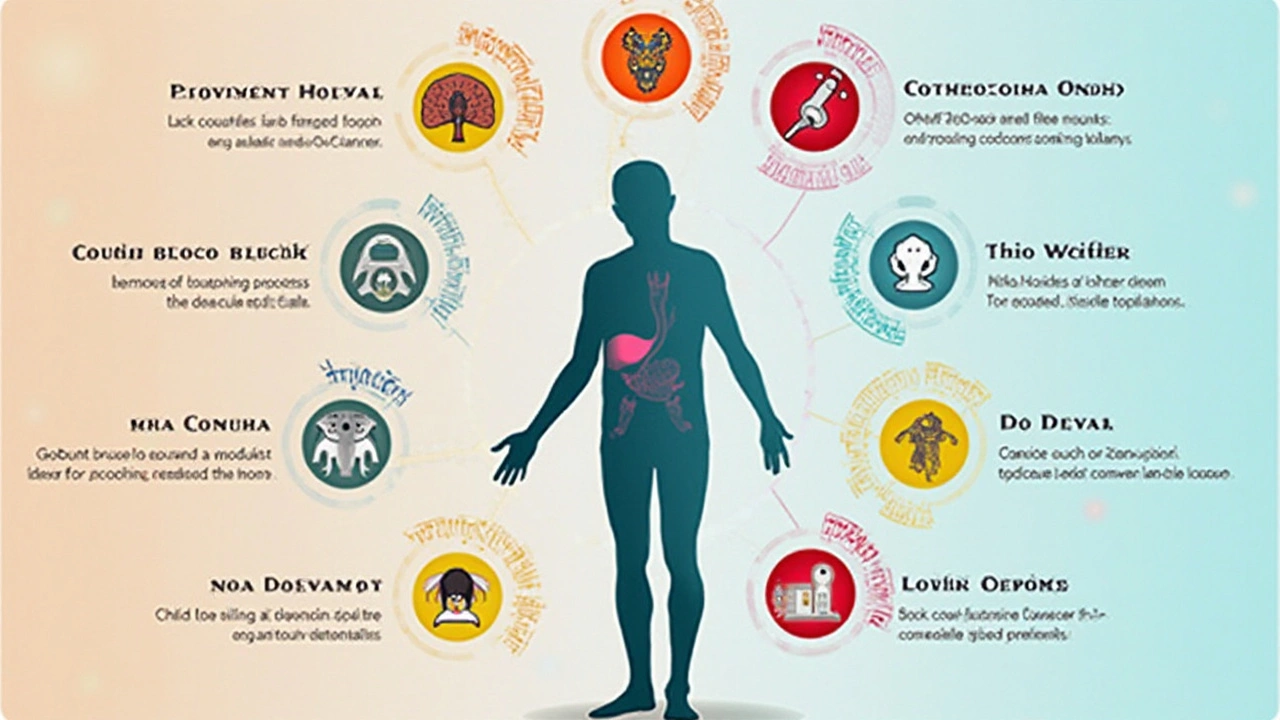-
26

10 Warning Signs of Cancer You Should Never Ignore
Every year, millions of people hesitate to see a doctor about strange symptoms, hoping they’ll just disappear with time. But cancer doesn’t always knock loudly. Sometimes, it whispers—barely noticeable changes in your body or routines that seem harmless until it’s too late. About 1 out of 5 cancer cases worldwide could be more treatable if caught early, according to the World Health Organization. The truth is, ignoring persistent or odd changes is risky. Knowing which signs matter can make all the difference. No need to panic over every headache or cough, but there are some signals your body sends that you just shouldn’t brush off.
Why Cancer Symptoms Are Easy to Miss
Cancer doesn’t always present in obvious ways. It has a knack for mimicking common illnesses or blending into your everyday wear and tear. Tired after a long week? Stomach ache from last night’s leftovers? It’s easy to blame most symptoms on work stress or minor bugs. But here’s where things get tricky: cancer can stick around and subtly worsen, while other illnesses come and go.
For example, weight loss gets celebrated until you realize you weren’t even trying. Night sweats might feel like just part of getting older. Persistent cough? Allergies, right? Actually, almost every one of these could be cancer’s calling card if they stick around longer than a few weeks or steadily get worse. People often chalk it up to age, lifestyle, or infections, not realizing that cancer waits for no one.
An interesting study published in 2023 found that people who waited more than six months to get a nagging cough checked out were at a higher risk of late-stage lung cancer. That’s not to say every cough means cancer, but it shows why paying close attention to patterns matters. Don’t just accept "normal" aches and pains if they drag on without explanation.
Doctors always look for symptoms that are new, unusual, or persistent. Something’s off? If it hangs around for two weeks, don’t gamble on it going away. At worst, you’ll waste an hour at the clinic. At best, you’ll catch something before it grows too serious.
The 10 Key Cancer Symptoms That Deserve Your Attention
Let’s break down the ten warning signs you really shouldn’t ignore. Spotting them early can mean the difference between a minor health scare and a major battle.
- Unexplained weight loss – Dropping more than 5% of your body weight in a few months without diet or exercise is a red flag. Pancreatic, stomach, lung, or esophageal cancers often show up this way because they affect how your body processes nutrients.
- Persistent fatigue – It’s not just low energy after a bad week. This is bone-deep exhaustion that doesn’t lift, no matter how much rest you get. Leukemia and colon cancer often drain energy without any clear cause.
- Unusual bleeding – Blood in stool, urine, heavy periods, or coughing up blood shouldn’t be ignored. Colon, bladder, kidney, and lung cancers can all cause strange bleeding.
- New lumps or thickening – Not every bump is bad, but if you find a lump that keeps growing (especially in the breast, testicles, abdomen, or neck), get it checked. Most breast cancers are spotted by patients, not doctors.
- Pain that lingers – Headaches that won’t stop, back pain with no obvious injury, or unexplained joint pain: if it sticks around and nothing helps, it’s not something to just power through. Bone or brain tumors sometimes show up this way.
- Persistent cough or hoarseness – A cough lasting for more than three weeks, or a voice that stays hoarse, can be tricks used by throat or lung cancer to blend in with regular cold symptoms.
- Changes in bowel or bladder habits – Sudden constipation, diarrhea, or frequent need to pee can signal colon, prostate, or bladder cancer. Especially if combined with pain or blood.
- Unhealed sores or ulcers – A sore that refuses to heal after weeks (especially in the mouth or on the skin) isn’t just annoying—it could be oral or skin cancer trying to get your attention.
- Unusual discharge – If you notice white patches, foul-smelling discharge, or sores in the mouth or genitals, don’t just chalk it up to infection. Some gynecological and oral cancers announce themselves this way.
- Skin changes – Moles that change size, shape, or color, or new growths that look weird, may be subtle hints towards melanoma or other skin cancers. Take photos if you spot something changing and show your doctor.
Of course, plenty of these symptoms can have harmless explanations. But if you notice any of them—especially several at once—that’s your sign to make an appointment, not a resolution to cut back on coffee or Google it endlessly.

What if You Spot a Cancer Symptom?
Cancer isn’t a one-size-fits-all disease. Early action does save lives, and you don’t need medical school to listen to your gut. If you find something off in your body, don’t overthink: reach out to your primary care doctor first. GPs see thousands of likely harmless symptoms every year, but they know when something needs a closer look or a referral to a specialist.
Here’s a trick: track your symptoms in a diary. Write down the date, time, and what you noticed. Is it getting better? Worse? Just holding steady? This gives your doctor much more to work with than a vague, "I feel off". For skin changes, snap a photo once a week with your phone—you’ll have a timeline you can show.
Don’t wait for all the symptoms to line up—sometimes, you’ll only notice one or two. Cancers often grow quietly at first, then become more obvious. The earlier you sound the alarm, the more options you’ll have. Keep a pulse on your family history, too: if close relatives had cancer, mention it to your doctor and ask if you should get screened earlier.
Insurance worries? Most countries have free or low-cost screening programs for common cancers, especially breast, cervical, prostate, and colon types. If you’re under 50 and have no family history, typical screening might seem far away. But if you’ve got new symptoms, age doesn’t matter. Catching something early is usually much cheaper and easier to treat than waiting for a crisis.
Tips for Reducing Your Cancer Risk
No one can eliminate cancer risk entirely. But some habits make a big difference. For starters, maintain a healthy weight. Obesity is now linked to 13 different cancer types, not just those you’d expect. If you smoke, dropping the habit could cut your risk by half within five years. And don’t fall for the idea that vaping is safe—data from 2024 shows that it’s not risk-free.
Eat fruits and veggies—about five servings a day gives you protective antioxidants and fiber. Limit red and processed meats, which the International Agency for Research on Cancer ranks as definite and probable carcinogens. Get moving: regular exercise, even a daily walk, helps regulate hormones and reduces risk signals across the board.
Wear sunscreen, especially in the summer months. One nasty sunburn doubles your risk of melanoma, which is the most dangerous skin cancer. Practice safe sex, which reduces risks for HPV-related cancers. And, if you’re due a shot, HPV and hepatitis B vaccines lower certain cancer risks dramatically.
Keep up with cancer screenings. These aren’t just for "old people"—many guidelines now recommend certain checks starting in your 30s or 40s, especially if you’ve got family history or smoke. A mammogram, colonoscopy, or even a quick HPV test might just catch cancer before you feel a single symptom.

When to See a Doctor and How to Talk About Your Symptoms
If a symptom hangs around for more than two weeks or gets worse without explanation, call your doctor. It might feel awkward to bring it up, especially for intimate symptoms, but doctors have heard and seen it all. Say what’s changed for you: "I noticed this lump in my neck that’s not going away," or "I’ve lost weight without trying." Bring your symptom diary or photos—it takes the guesswork out.
Don’t let fear, stigma, or embarrassment make you stay quiet. One story from 2023 went viral when a woman ignored postmenopausal bleeding out of shame, only to find out she had early-stage uterine cancer. Her regret? Not bringing it up sooner. You’re not wasting anyone’s time—one checkup could quite literally be the difference between a scare and a serious diagnosis.
Mentally, dealing with the unknown is tough. Remember, nine out of ten times, these symptoms turn out to be something far less scary than cancer. But it’s that one time—the unusual lump, the blood in urine, the cough that won’t end—that can completely change a life if caught in time. Listen to your body, trust yourself, and take action early. No one regrets catching cancer too soon, but waiting too long? That’s a different story.